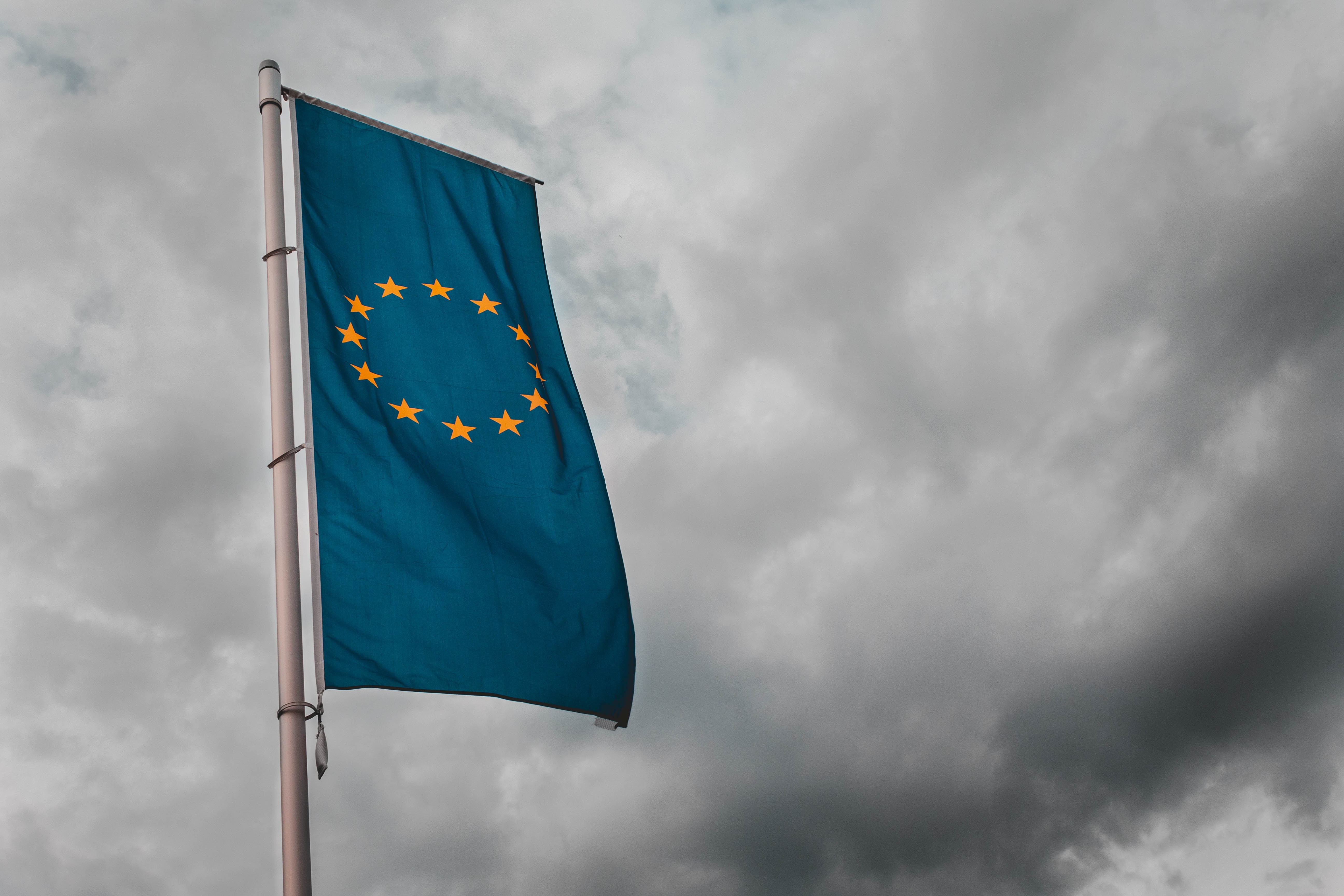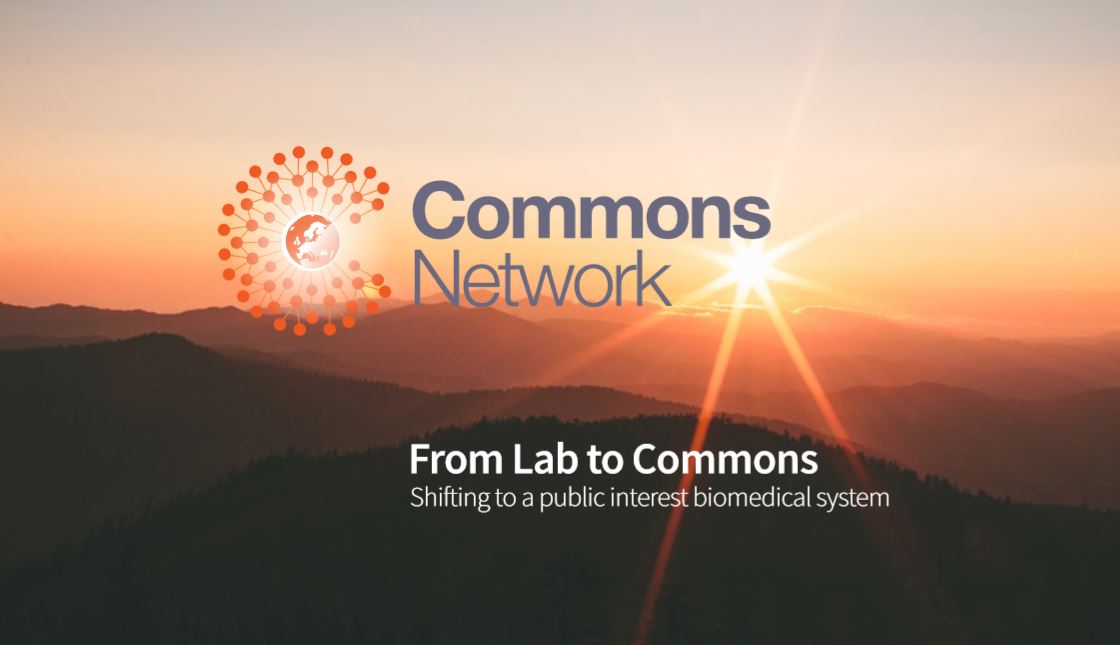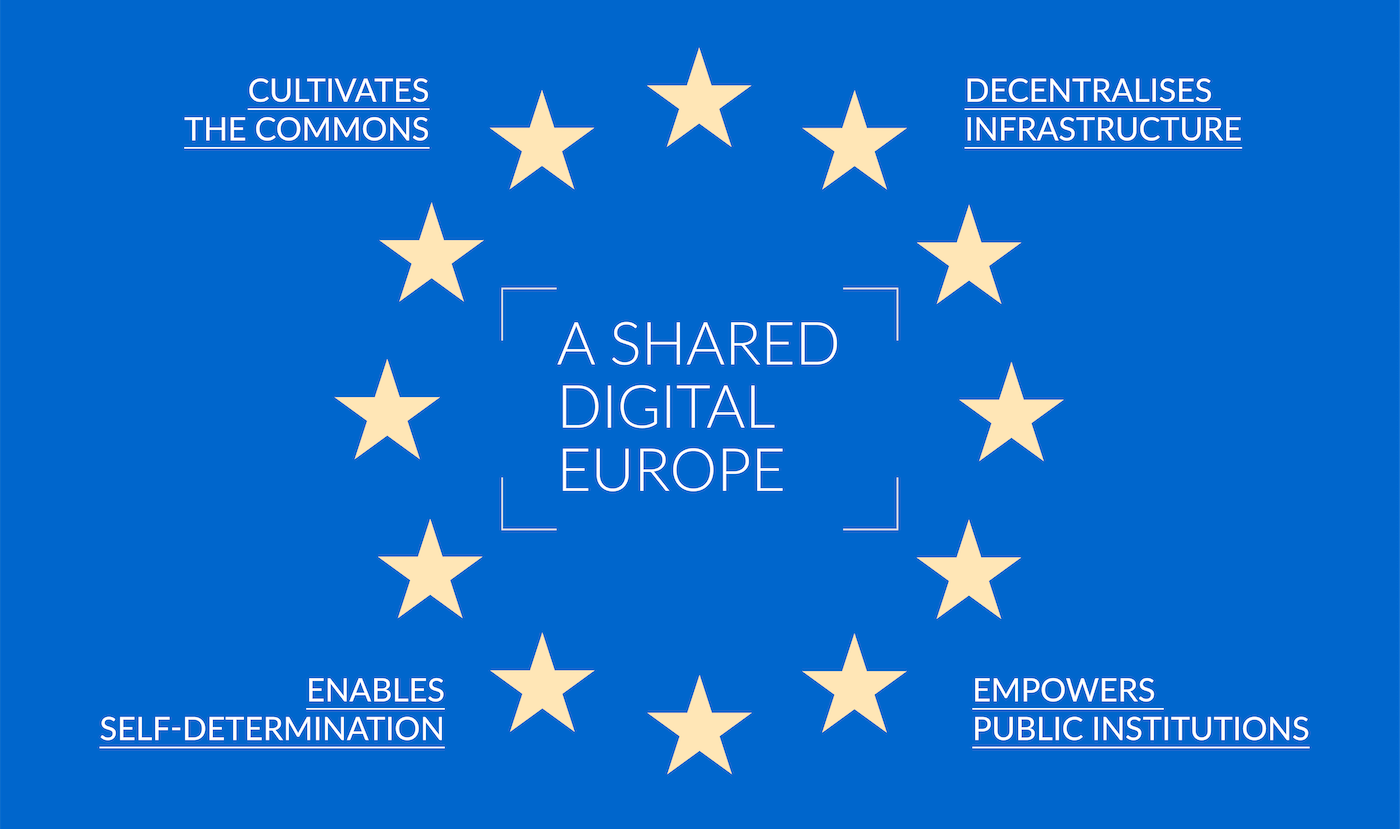Commons Network spent the last two years working on a programme called ‘Commons for Europe’. It was our way of streamlining our work in different fields into one coherent ‘campaign’, focused on the most crucial policy event in this decade: the elections for a new European Parliament in May 2019.
The campaign featured events all over Europe, publications, and hundreds of cups of coffee with future MEPs, policy makers and fellow activists. This week we vote: time to look back at all that we have done and more importantly, time to look towards the future. The ‘Commons for Europe’ programme was divided into different fields, like Digital, Energy, Food, Democracy, Cities and more. Here are some of the highlights.

Digital Commons in Europe: A New Vision for a Shared Digital Europe
Together with our partners Centrum Cyfrowe form Poland and Kennisland in the Netherlands, we have worked on developing a frame that can replace the existing Digital Single Market frame of the European Commission. This new frame can guide policymakers and civil society organisations involved with digital policymaking in the direction of a more equitable and democratic digital environment, where basic liberties and rights are protected, where strong public institutions function in the public interest, and where people have a say in how their digital environment functions – a Shared Digital Europe. Technology changes society and we need to shape and design technology based on positive social objectives. We believe that Europe has the capacity to shape such a digital society.
The core of this frame was developed during a stakeholder workshop in October 2018 that brought together approximately twenty civil society experts, representing a broad range of perspectives and stakes from across the European Union. We held several additional consultations in Berlin, Brussels and Warschau. The vision has been well received and we look forward to collaborating with many intiatives in the coming years to makes this vision reality. We have presented the vision on several occasions including in the European Parliament in April this year and as a keynote talk at the Creartive Commons Global Summit in Lisbon on May 9th.
Democracy in Europe: Let’s Democratise Europe
Two years ago, Commons Network organised a two-day workshop in Amsterdam, together with our friends at ECF. During those days, we brainstormed with people from partner organisations like Zemos, European Policy Lab, European Alternatives and Waag. The goal: to come up with a new frame around democracy in Europe. Why democratise now and what does real democratisation mean?
The follow-up to that meeting was the ‘Democratise Europe’ campaign. With a group of civil society actors, some of whom were present during the Amsterdam brainstorm, we co-wrote a manifesto that was to be launched in the weeks before the European Elections. We joined the ‘Democracy Alive’ event on the Dutch island of Texel to spread the word and present the document. During the past two weeks, we on-boarded more signatories and we discussed the underlying vision on democracy in Europe during a night we co-organised in a venue called Pakhuis De Zwijger on the 20th of May. It turned into a really interesting conversation about Europe. Watch the video of the entire night here.

Cities and Urban Commons: Shared Spaces
The cities-programme started with a year of research and fieldwork. We investigated the urban commons in Berlin and Amsterdam, combining policy analysis and storytelling from commoners. The policy report that followed was both thorough and colourful. Shared Spaces was received very well, with politicians and policy makers as well as activists and academics citing it as an important publication. We presented the paper to the city of Amsterdam, with whom we are now working on a commons vision for Amsterdam and promising approaches to protect and support the commons.
The work on cities started around the same time we organised the European Commons Assembly in Madrid. This work inspired our team to kickstart the Dutch Commons Assembly, which is now up and running in Amsterdam. Their first project is to build an interactive map of all commons initiatives in the city. They also organise monthly get-togethers with fellow commoners throughout the city. Join them here!
For a look back at the work we did for the European Commons Assemblies, read this essay that we published based on our experiences.

Access to Medicines: Health as a Common Good
Medicines are treated as commodities instead of commons goods in our current pharmaceutical system. The consequences include unaffordable prices for medicines, leading to pressures on health systems and to patients not receiving the treatment they need – even though these treatments are right there. Commons Network has advocated for the exploration of alternative models including collaborative and open innovation approaches as well as for shorter terms of market exclusivity by means of monopolies. Together with allies from the European Alliance on Affordable Medicines and Responsible R&D, we have launched a manifesto called People’s Health First!
The manifesto has been signed by organsiations, individuals and politicians across Europe and was translated into 7 languages. It features recommendations for policy makers to start treating medicines as a common good, in their research, Intellectual Property, trade and other polices, and to ensure public return on public investment. Together with our partner Wemos, we presented the manifesto to incoming MEPs and Dutch Members of Parliament during our event ‘Farma’s Other Futures’ on May 16th in Amsterdam.

Our Commons: Political Ideas for a New Europe
One the most important achievements in this two-year programme was the publication of a book about the commons, featuring case studies, essays and interviews. Our Commons showcases the wealth of transformative ideas that the commons have to offer. We have worked very hard on the book and we are grateful for all the inspiring essays and stories from the contributing authors. We believe the book is an important milestone for the international commons movement, providing a comprehensive and refreshing vision for Europe. It shows the political ideas, the academic thoughts, the activist practices, together forming an emerging discourse for a better future. Read it now!

 ☰
☰
